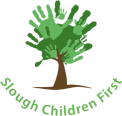Criteria for children services, children with disabilities

Slough Children's First provide services for children, young people and their families.
The service is based on a range of legislation including, but not limited to:
- Children’s Acts 1989 and 2004
- Children’s (Leaving Care) Act 2000
- Care Standards Act 2000
- United Nations Convention on the rights of The Child
- Human Rights Act 1998
- Adoption and Children’s Act 2002
- Data Protection Act 2018.
The policy framework also has regard to and is consistent with a range of government guidance, particularly the principles set out in Working Together to Safeguard Children 2015.
The Children Act 1989 places a duty on Children’s Services to assess the needs of children with disabilities.
When possible, all children, with or without disabilities, will be supported to have their individual needs met by their family and by universal and early help services available in their local community.
The provision of support for children with disabilities and their families can be provided across children’s social care services, health and/or the voluntary sector.
The following information provides details of the criteria for the Children With Disability (CWD) specialist services teams which is the Children with Disabilities team and Occupational Therapy service.
- The CWD team may undertake the assessment if the criteria for the team is met.
- When a child does not meet the criteria, this assessment is to be undertaken by another team within Slough Children First.
- The specialist CWD team criteria includes children with a permanent and substantial disability.
The definitions of permanent and substantial disability are as follows:
- substantial disability means severe or profound in which the child requires significant support from another person or equipment to carry out basic functioning.
- permanent includes factors that exist on an indefinite basis and not expected to improve. This could include intermittent and episodic conditions.
The CWD team would be responsible for assessing a child from birth to 18 years old who presents with a permanent and substantial, at a severe or profound level of disability and live within the boundaries of Slough Borough Council.
The information below define and provide factors which are taken into consideration when determining if an assessment should be undertaken by the CWD team.
Criteria of the CWD team
Child have a diagnosis of severe or profound in one of the following categories.
- Learning disability.
- Physical disability.
- Sensory disability.
- Multiple disabilities diagnosed to a severe/profound disability level of need.
Severe or profound learning disability
- Child has a profound or severe learning disability.
- Child needs full time help with every aspect of their lives, including eating, drinking, washing, dressing and toileting.
- Child has an Education, Health and Care Plan and attends a specialist school for children with profound to severe learning difficulties, requires constant supervision during school breaks and lunch times and at least 1:1 adult supervision when in the community.
- Learning is significantly below age related expectations in most/all areas of the curriculum.
Severe or profound physical disability
- Child is wheelchair dependent both inside and outside the home environment.
- Child is reliant on specialist equipment for transfers and mobilises generally.
- Child is dependent on others for feeding, bathing, dressing and toileting.
- Daily use of specialist equipment which requires operational assistance such as hoist.
- Child is in receipt of higher rate DLA - mobility component.
Severe or profound sensory disability
- Child is registered blind.
- Child has severe hearing and/or visual impairment and requires the need for additional supervision to maintain safety and to access specialist support.
The following needs are additional factors in determining if a child meets the criteria for the Children with Disability Team and are to be considered in relation to the above:
Communication
- Nonverbal communication.
- Severely delayed processing skills.
- Communicate using communication aids such as Picture Exchange Communication System (PECS), none or very little communication used, communicating basic level needs.
- Little/no social communication/interaction with children of a similar age.
- The child’s form of communication is their behavior and this requires an adult to interpret.
Complex health needs
- Child has regular admissions to hospital for treatment.
- Child or young person has complex health problems requiring specialist advice and guidance which is at least annually reviewed at a specialist hospital. This complex health need is substantial and includes palliative care/life threatening conditions/life limiting condition.
- 24-hour minimum support is required to meet the child’s needs and this support requires medical training for the parent/carer, or professional supporting them.
- Daily nursing or medical care is required.
- The child requires daily rescue medication or emergency medication such as Buccal Midazolam.
- The child has an emergency medication care plan.
- Daily use of specialist equipment which requires operational assistance.
- Health needs significantly impact on learning, development and daily functioning.
Severe behavioural difficulties related to child’s permanent and severe/profound disability
- Child is diagnosed with a permanent disability such as severe ASD diagnosis that requires constant monitoring, supervision, and a structured programme.
- Challenging behavior that impacts on all aspects of the child’s functioning and the child poses a severe risk to themselves and others when compared to children of a similar chronological age.
- Requires a structured behaviour management programme which is overseen by a specialist service.
- Challenging behaviour which impacts significantly on community life and family/carers require specialist provision to function socially or educationally.
- Child poses a severe risk to self or others, and has no awareness of impact of behavior on others.
- Requires support of a trained adult to regulate their emotions.
Referral process
Where a referral is received via the Multi – Agency Safeguarding Hub (MASH), the MASH in discussion with the Duty Manager in the Children with Disabilities Team - will confirm criteria is met or not for the Children with Disability Team within 4 hours of receipt of the information.
If there is an internal transfer requested to the Children with Disabilities Team and it appears that the criteria for the Service for Children with Disabilities are met, consultation will take place with the Managers in the Team to consider if criteria are met or not as per the timeframes in the transfer policy.
When criteria are not met for the Children with Disabilities Team but advice and information is required the Duty Social Worker is available for consultation, advice and signposting. If the case is an open case the allocated worker/workers are invited to attend the Children with Disabilities monthly surgery to explore support and to seek advice to support the progression of the case.
Where there is a dispute, the matter should be discussed between the relevant Team Manager’s with a view to resolution. Where the dispute remains unresolved, the matter should be referred to the Head of Service with a view to resolution.
All referrals to Slough Children’s First should come through the Front Door. To make a referral (Monday-Friday, 9am-5pm):
- phone 01753 875 362
- email sloughchildren.referrals@sloughchildrenfirst.co.uk
For out of hours enquiries:
- phone 01344 786543
- email EDT@bracknell-forest.gov.uk
Assessment process
All children who meet the criteria for the Service for Children with Disabilities Team will receive a Child and Family Assessment.
The assessment will also explore the needs of the parent/carer and consider if there are any young carer’s identified, and appropriate assessments for them will be undertaken.
When a child is referred for an occupational assessment and they meet the CWD eligibility criteria, a specialist Occupational Therapy Assessment will be completed subject to the urgency of the equipment needs of the child.
For non urgent Occupational Therapy referrals, a waiting list is in place. If during the Occupational Therapy Assessment other needs are identified, the Occupational Therapist will refer the child and family back to the CWD Social Work Team for an assessment.
The assessment may identify that needs arise due to a child's disability or as a result of a parent's health or disability or a child may be in need of protection from abuse or neglect.
Children's Disability Register
Slough Children’s Disability Register holds information about children with a disability.
Parents can sign up for an account on the Children’s Disability Register and provide details about their child for inclusion on the register.
The register is used to plan and develop services for children with disability and also to assist Adult Services with information on future service needs.
Please note: the Children's Disability Register is currently not available due to essential updates. We are not issuing or renewing Max cards. Sorry for the inconvenience.
Child protection cases
With new referrals (where the case is not open to the Children with Disability Service) where the primary concern is child protection, the Child and Family Assessment will be undertaken by the Assessment Team. Where the Assessment Team retains responsibility for the child, appropriate advice will be provided by the Children with Disability Service relating to issues arising from any disability. However, the assessment process and any instigation of child protection procedures will remain the responsibility of the Assessment Team.
The Service for Children with Disabilities will usually undertake all Section 47 enquiries, assessments and legal proceedings in respect of children who are already open cases within the service.
In cases where there is a child with a disability who is already open to the Children with Disability Service, and there presenting child protection; siblings of the child with disability will also be opened to the service.
Where there are safeguarding concerns for a child who has disability and his or her siblings, and the child is not known to the Children with Disability Team; the children will be open to the Assessment Team and/or Safeguarding Team.
Services to children with a disability
As a general principle, where children and families can receive mainstream services, these should be provided as a way of minimising the impact of disability and avoiding any unnecessary segregation.
Where the Child and Family Assessment identifies that specialist services are required, these may be provided by health or voluntary agencies and/or the Local Authority. The assessment will make recommendations as to the kind of services or equipment that is required to meet the child's needs.
Any recommendation for the provision of equipment requires the approval of the Service for Children with Disabilities Manager. If approved, equipment will usually be provided on a long-term loan basis. Adaptation work through a Disabilities Facilities Grant can be carried out by referral to the Local Authority and the family will be given assistance with this, as assessed.
The support services that may be included in a support package for a disabled child and his/her family range from:
- the provision of information on activities, clubs, playgroups and play schemes
- the provision of advice and information about other organisations which may be able to offer help and support
- advice to access community based short breaks
- support for the child in/outside of the home as part of an assessed package of care
- support services using direct payments
- short breaks providing overnight care.
When services have been agreed, they will be incorporated into a Child in Need Plan, Child In Need of Short Breaks Plan or, where the child becomes Looked After/ Looked After for Short Breaks Care Plan or Child Protection Plan when there are safeguarding concerns.
Services to parents/carers, young carers
Services can also be provided to parent carers/carers where the child is disabled. Under the Carers (Recognition and Services Act) 1995 carers are entitled to an assessment of their own needs. Any such assessment of parent carers/carers should follow the guidance in the Assessment Framework (as revised by Working Together 2013 and 2015).
The assessments which can be undertaken include:
- parent carer assessment
- carer’s assessment
- young carer’s assessment
and will be undertaken by the team to which the child is known to.





